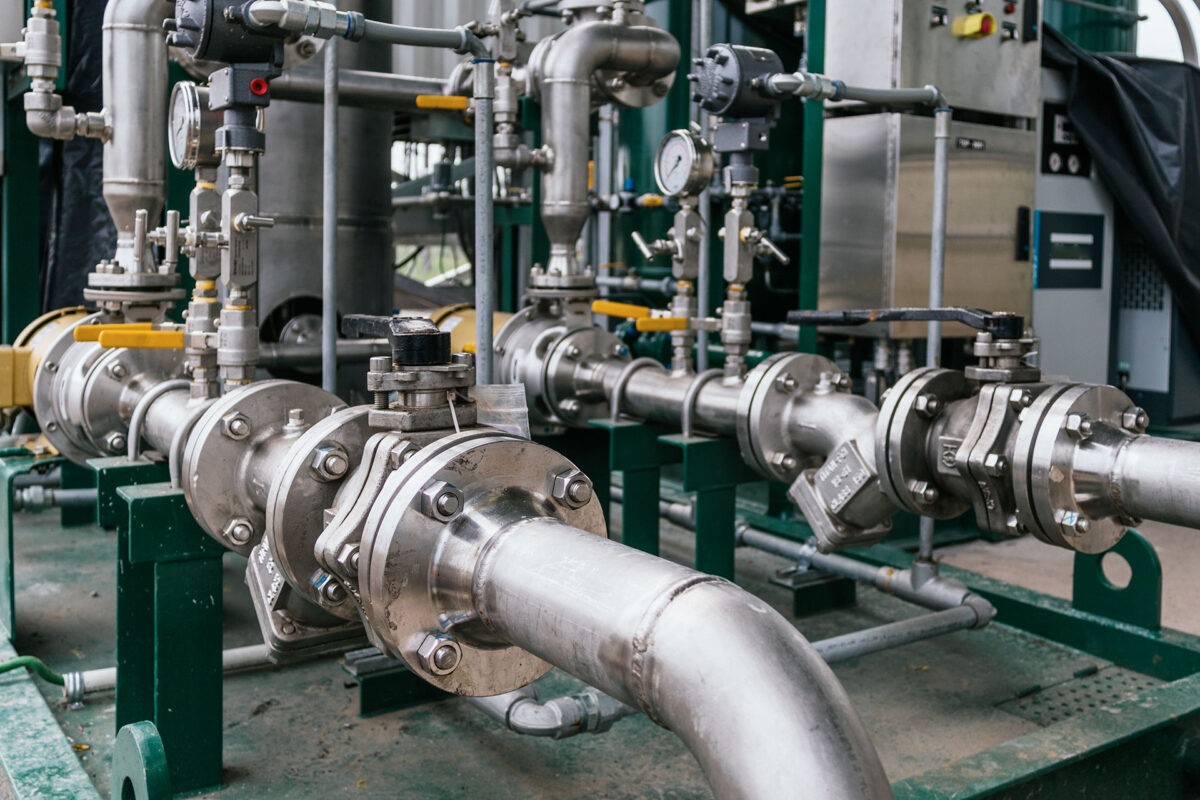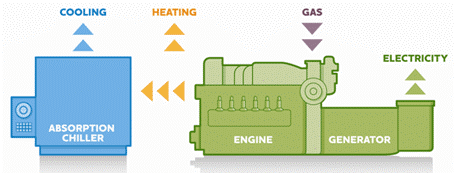Cogeneration and Trigeneration
Normally in a thermal power plant only 35% of the fuel is converted into electrical energy, while the remaining 65% is dispersed into the environment because it is not used. Through the cogeneration plant, the heat produced is recovered for other uses (e.g. hot water, steam, drying processes, other electrical energy), thus achieving an energy efficiency of 90%. Cogeneration therefore allows energy to be produced in an environmentally friendly way.
It is also possible to produce refrigerated water (typically around 7°C) using all or part of the thermal energy produced by the cogenerator in a plant called an absorber: in this case we talk about trigeneration systems indicated by the acronym CCHP, Combined Cooling Heat and Power.
The advantages
of cogeneration and trigeneration
- a reduction in fuel consumption, thanks to an improvement in the overall efficiency of the plant, which is able to produce electricity, heat and refrigeration with the same amount of primary energy
- a reduction in energy transmission losses, thanks to the proximity of the electricity, heat and refrigeration production facilities to the places of consumption
- a consequent reduction in environmental impact, as lower fuel consumption helps reduce CO2 emissions
- economic savings in the medium/long term, thanks to the lower amount of fuel consumed and the tax benefits currently applied to alternative energy systems
This configuration allows the trigeneration plant to operate at full capacity in HEC mode (High Efficiency Cogeneration) as defined by the "GSE" (Gestore Servizi Energetici, which means Energy Service Operator). The HEC recognition allows you to receive from the GSE, based on the value of primary energy savings (PES) obtained, an important economic contribution represented by the Energy Efficiency Certificates (EEC) better known as "white certificates".
Trova il tuo contatto.
CON PIU’ DI 70 SEDI IN TUTTA L’EUROPA, SIAMO VICINI AI NOSTRI CLIENTI

